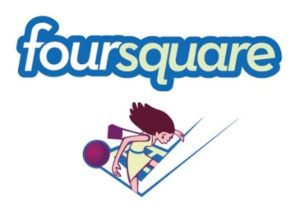Social media marketing, or SMM, is a form of internet marketing that implements various social media networks in order to achieve marketing communication and branding goals. Social media marketing primarily covers activities involving social sharing of content, videos, and images for marketing purposes.
Social Media and Marketing: Start With a Plan
Before you begin creating social media marketing campaigns, consider your business’ goals. Starting a social media marketing campaign without a social strategy in mind is like wandering through a forest without a map—you’ll only end up lost.
The Marketing Resultants Group will help you create a social media marketing plan and brainstorm about your goals: what are you hoping to achieve through social media marketing? Who is your target audience? Where would your target audience hang out and how would they use social media? What message do you want to send to your audience with social media marketing?
How to Use Social Media for Marketing: Know Your Platform
We’ve put together a brief overview on how to use social media for marketing according to each platform’s unique environment. Various social media marketing sites will require different techniques, so develop a unique strategy tailored for each platform.
 Facebook
Facebook
Facebook’s casual, friendly environment requires an active marketing strategy that begins with creating a Facebook Business Fan Page. You will want to pay careful attention to layout, as the visual component is a key aspect of the Facebook experience. Social media marketing for business pages revolves around furthering your conversation with audiences by posting industry-related articles, images, videos, etc..
Facebook is a place people go to relax and chat with friends, so keep your tone light and friendly.
 Google+
Google+
Google+ is the new Facebook competitor, and it promotes the same fun, casual atmosphere. On Google+ you can upload and share photos, videos, links, and view all your +1s. Also take advantage of Google+ circles, which allow you to segment your followers into smaller groups, enabling you to share information with some followers while barring others. For example, you might try creating a “super-fan” circle, and share special discounts and exclusive offers only with that group.
You can also try hosting video conferences with Hangouts and experiment using the Hangout feature in some fun, creative ways. Some social media marketing ideas: if you’re a salon, host a how-to session on how to braid your hair. If you own a local bookstore, try offering author video chats. If you’re feeling adventurous, invite your +1s to your Google+ Community. Google+ Communities will allow you to listen into your fan’s feedback and input, truly putting the social back into social media.
 Pinterest
Pinterest
Pinterest is the latest in social media marketing trends. Pinterest’s image-centered platform is ideal for retail, but anyone can benefit from using Pinterest for social media purposes.
Pinterest allows small businesses to showcase their own product offerings while also developing their own brand’s personality with some unique pinboards.
 Twitter
Twitter
Twitter is the social media marketing tool that lets you broadcast your updates across the web. Follow tweeters in your industry or related fields, and you should gain a steady stream of followers in return.
Mix up your official-related tweets about specials, discounts, and news updates with some fun and quirky tweets interspersed. Be sure to retweet when a customer has something nice to say about you, and don’t forget answer people’s questions when possible. Using Twitter as a marketing tool revolves around dialog and communication, so be sure to interact as much as possible.
 LinkedIn
LinkedIn
LinkedIn is one of the more professional social media marketing sites. LinkedIn Groups is a great venue for entering into a professional dialog with people in similar industries and provides a place to share content with like-minded individuals.
Encourage customers or clients to give your business a recommendation on your LinkedIn profile. Recommendations makes your business appear more credible and reliable for new customers. Also browse the Questions section of LinkedIn; providing answers helps you get established and earns trust.
 YouTube
YouTube
YouTube is the number one place for creating video content, with can be an incredibly powerful marketing tool. Many businesses try to create video content with the aim of having their video “go viral,” but in reality those chances are pretty slim. Instead, focus on creating useful, instructive “how-to” videos. These how-to videos also have the added benefit of ranking on the video search results of Google, so don’t underestimate the power of video content!
 Location-Based Social Media Tools
Location-Based Social Media Tools
Platforms like Yelp, FourSquare, and Level Up are great for brick and mortar businesses looking to implement marketing. Register on these sites to claim your location spot, and then consider extra incentives such as check-in rewards or special discounts. Remember, these visitors will have their phones in hand so they will have access to providing reviews which could hurt or significantly aid your users.
 Reddit
Reddit
Reddit, or similar social media platforms such as Stumble Upon or Digg, are ideal for sharing compelling content. With over 2 billion page views a month, Reddit has incredible marketing potential, but marketers should be warned that only truly unique, interesting content will be welcomed. Posting on Reddit is playing with fire—submit spammy or overtly sales-focused content and your business could get berated by this extremely tech-savvy community.
If you have content you believe the Reddit community (majority is young, geeky, liberal, and internet-obsessed) would enjoy, you could reap tremendous benefits and earn valuable traffic.
Using social media in marketing does more than improve site traffic and help businesses reach more customers; it provides a valuable venue for better understanding and learning from your target audiences. Contact us now and let us show you how using social media for marketing can improve your business.
